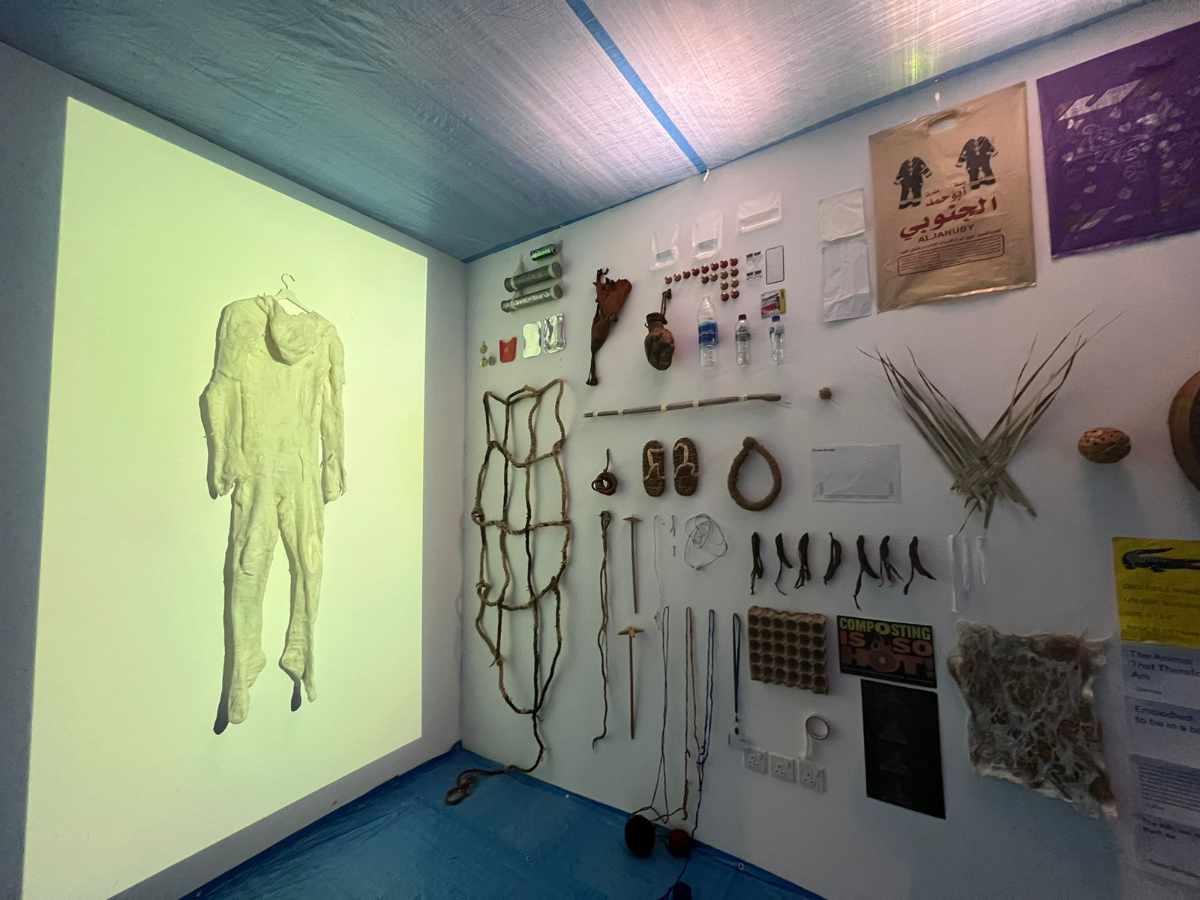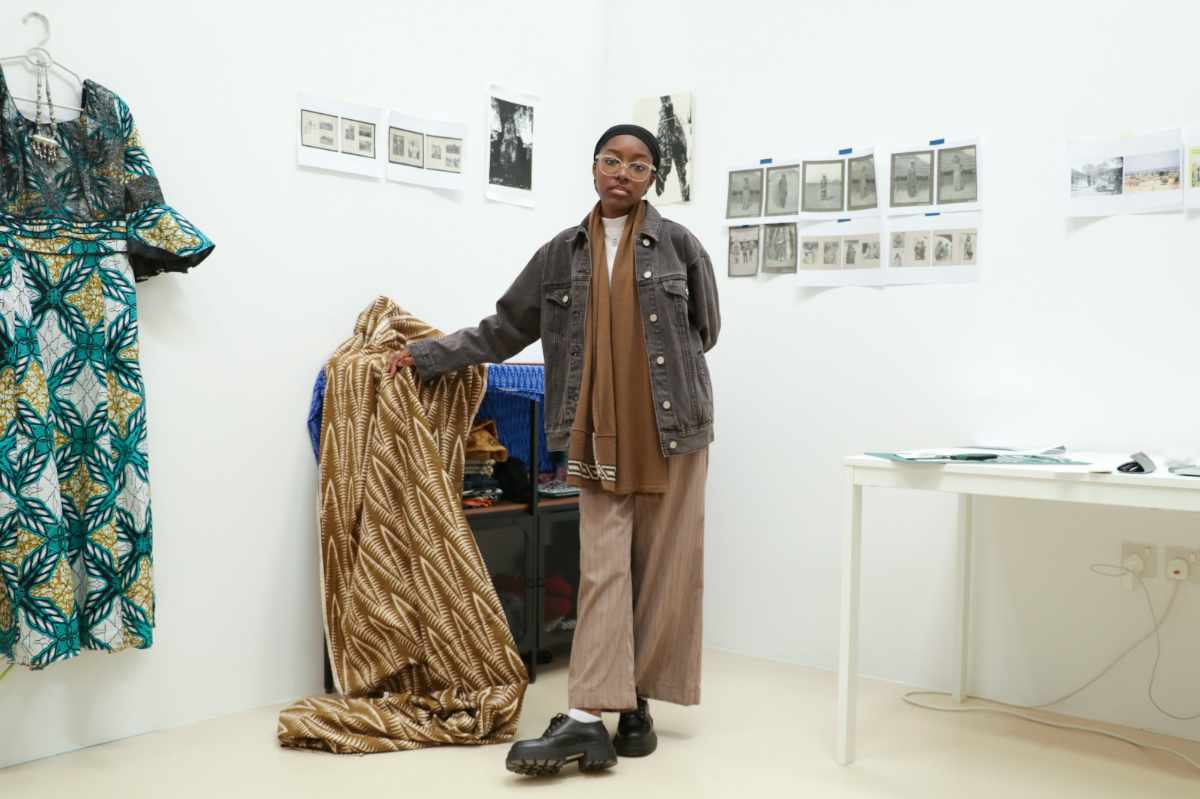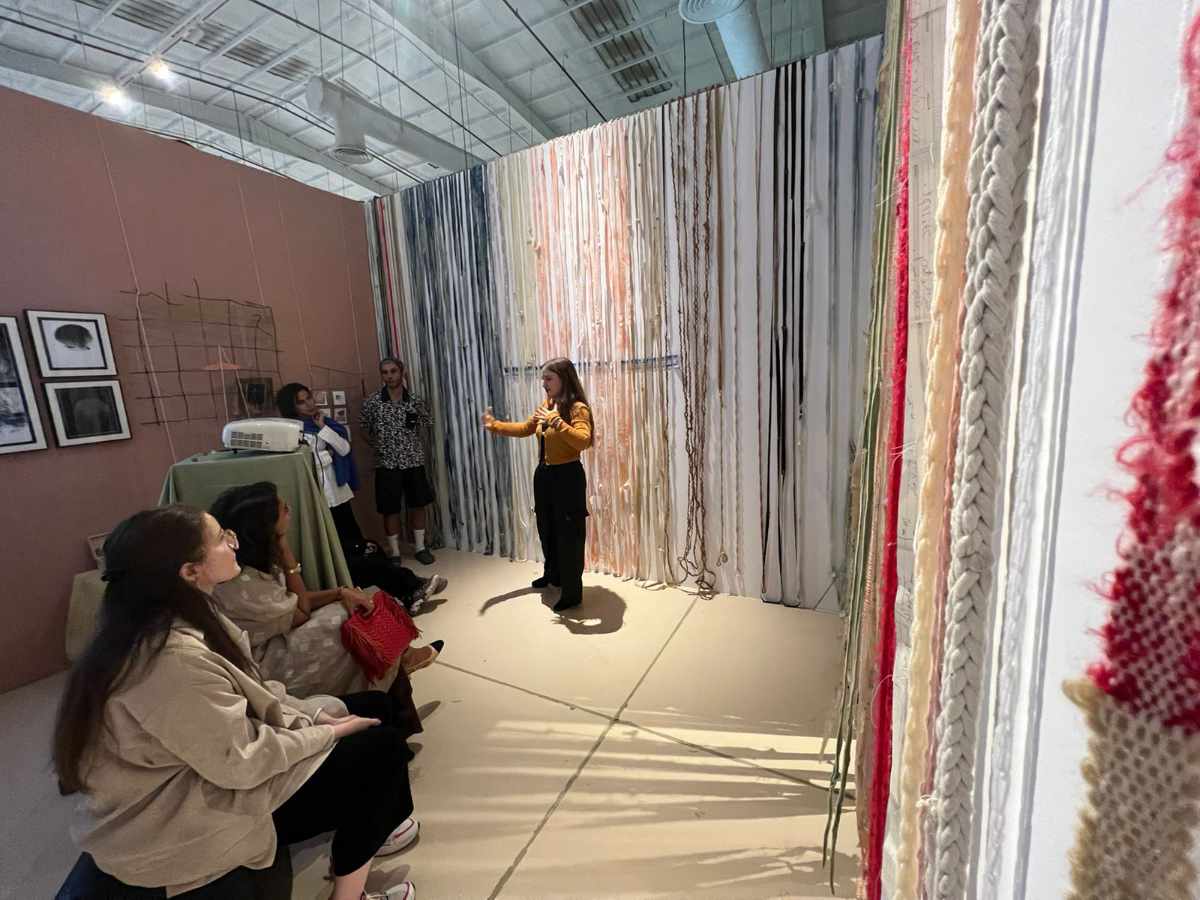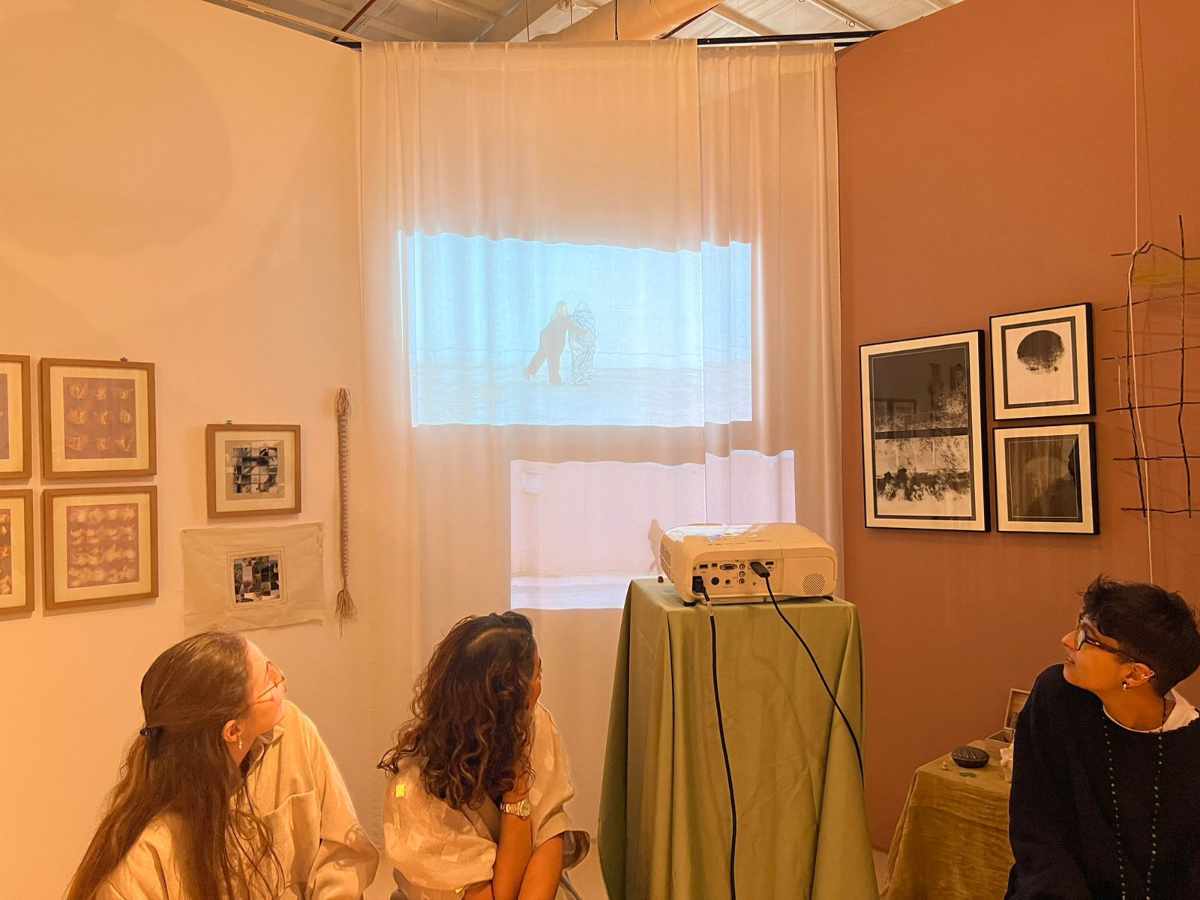RIYADH: The second cycle of the Intermix Residency program challenged stereotypes related to multicultural identities within Saudi Arabia in its Open Studio event, creating a safe space for artists to discuss displacement, immigration and belonging in a showcase themed “Bodies as Landscapes.”
The two-day residency showcase, which concluded on February 28, was a collaborative output of the Visual Arts and Fashion Commissions, both subsectors of the Ministry of Culture, aiming to encourage local and international artists to bridge gaps between various disciplines through innovation, transformation and sustainability.
The showcase invited public engagement with the works of the residents, including Omnia Abdelkader, Hatem Al-Ahmad, Safa Al-Belushi, Khadija Arif, Maria Florencia Carranza, Eduardo Cassina, Somaya Fallatah, Tamara Kalo, Sadaf Khan, Tra My Nguyen, Hayat Osama, Adrian Pepe and Angelo Plessas.

Resident artist Adrian Pepe displays a lifesize caste made of sheep's wool in his artwork "Sheddings," portraying funeral rituals as a form of rebirth. (Supplied)
Tara Al-Dughaither, the curator of the two cycles, told Arab News: “Saudi is a diverse place, and the diversity makes us special…I think any space that is thoughtful of the artists (and their) personal stories is a space where different conversations and dialogue can happen. Personal narratives, in general, are important themes in all of my work.”
Al-Dughaither is behind the platform Sawt Asura, a research project dedicated to archiving the history of Saudi women through vocal heritage. She said that much of the curation and ideation of the theme stems back to that.
“Art is (curation),” she said. “I think that that’s a rare opportunity and a privilege to be able to bridge my own personal practice with my curatorial practice, which also comes from my personal narrative. And I think that’s why I can connect to artists.”
It is important for artists, especially those early on in their career, to embrace their identities before moving on to larger conceptual spaces, Al-Dughaither said.
In “Looking Over,” visual artist and photographer Fallatah presents a series of self-portraits taken as part of an ongoing process to discover and understand her Nigerian heritage and culture, one that was shuttered from her growing up.
“I’m a third-generation Nigerian Saudi,” Fallatah told Arab News. “I became interested in understanding and learning more about the culture and heritage because it frustrated me how my family has distanced from the culture. I was always interested in colonialism, slavery, African art, and all of that, and I felt it was really important to understand that this is me. This makes me.”

In “Looking Over,” visual artist and photographer Somaya Fallatah presents a series of self portraits taken as an ongoing process of discovering her Nigerian heritage and culture, one that was shuttered from her growing up within Saudi. (Supplied)
Her studio is draped in a wall collage of fabrics printed with Nigerian designs and collected over the years, some of them passed down from family members.
Al-Dughaither said of the curatorial process: “I told (Fallatah), ‘Don’t go too deep into your route — that’s a lifelong journey. Just express yourself where you are now so that you have a good start and express it through the medium that you want to perfect.’”
Using the fabrics as a means to further explore her heritage, Fallatah had some of the other residents drape them around her, as if she were seated within the cloth’s embrace, all documented in a series also displayed on the studio’s walls.
Nearby was a display of images capturing her dancing to Hausa music, a genre native to Nigeria.
Interdisciplinary artist Kalo presented “Grounding Alysar,” a performative multimedia video deconstructing the idea of home and displacement. The artist used found pieces of fabric to create a rope the length of her childhood compound’s parameters.

Interdisciplinary artist Tamara Kalo presents “Grounding Alysar,” a performative multimedia video deconstructing the idea of home, displacement, and home creation. The artist used found pieces of fabric to create a rope the length of her childhood compound’s parameters. (Supplied)
“I think being in this residency has definitely helped me reflect a lot on my practice and the topics and ideas I’m interested in, but also it was a beautiful container for (the) cultural exchange of ideas and techniques,” Kalo told Arab News.
The story is in conversation with Alysar, the Queen of Tyre, or modern-day Lebanon. She was exiled from her home after her brother murdered her husband, which led her to bring her people to a new land across the Mediterranean, landing in modern-day Tunisia and establishing Carthage.
“This was a story that my grandmother told me and that got passed down from person to person, and somehow it’s something that I felt called to expand on and (relate) to my own experience...growing up in Riyadh in a compound called Cordoba, the compound where my parents (established) their own new community and recreated their own home,” she said.
In the video, her mother wraps the rope, measured using the length of the artist’s arm, around her daughter. In comprehending her ownership of the space, Kalo uses the ritualistic act of movement and migration to gain agency over her own place in the world.

In her video installation, artist Tamara Kalo uses the ritualistic act of movement and migration to gain agency over her own place in the world. (Supplied)
As a textile designer, Arif presents the hurdles of a new chapter in her life in the shape of a gown titled “Hool,” embellished with six types of flora found in the region: cactus, lily, jasmine, goldenrod, marigold, and baby’s-breath.
In navigating motherhood, migration from Pakistan to Saudi, and the discovery of new land and culture, each flower is a qualitative piece within the mosaic of her journey: Cacti symbolize hardships, while marigolds stand for protection and support.
Arif told Arab News: “I’m a body here, and Saudi Arabia is the landscape…If we don’t go through the difficult parts, we can’t achieve happiness. Having a kid, being displaced and having the support of my husband is beautiful.
“I’m extremely happy to see this conversion and transformation in Saudi Arabia. We’ve seen the negative depictions of Saudi…but one of the main reasons I’m showing flora is to show people it’s beautiful. I’m so grateful to be here and (grow).”































